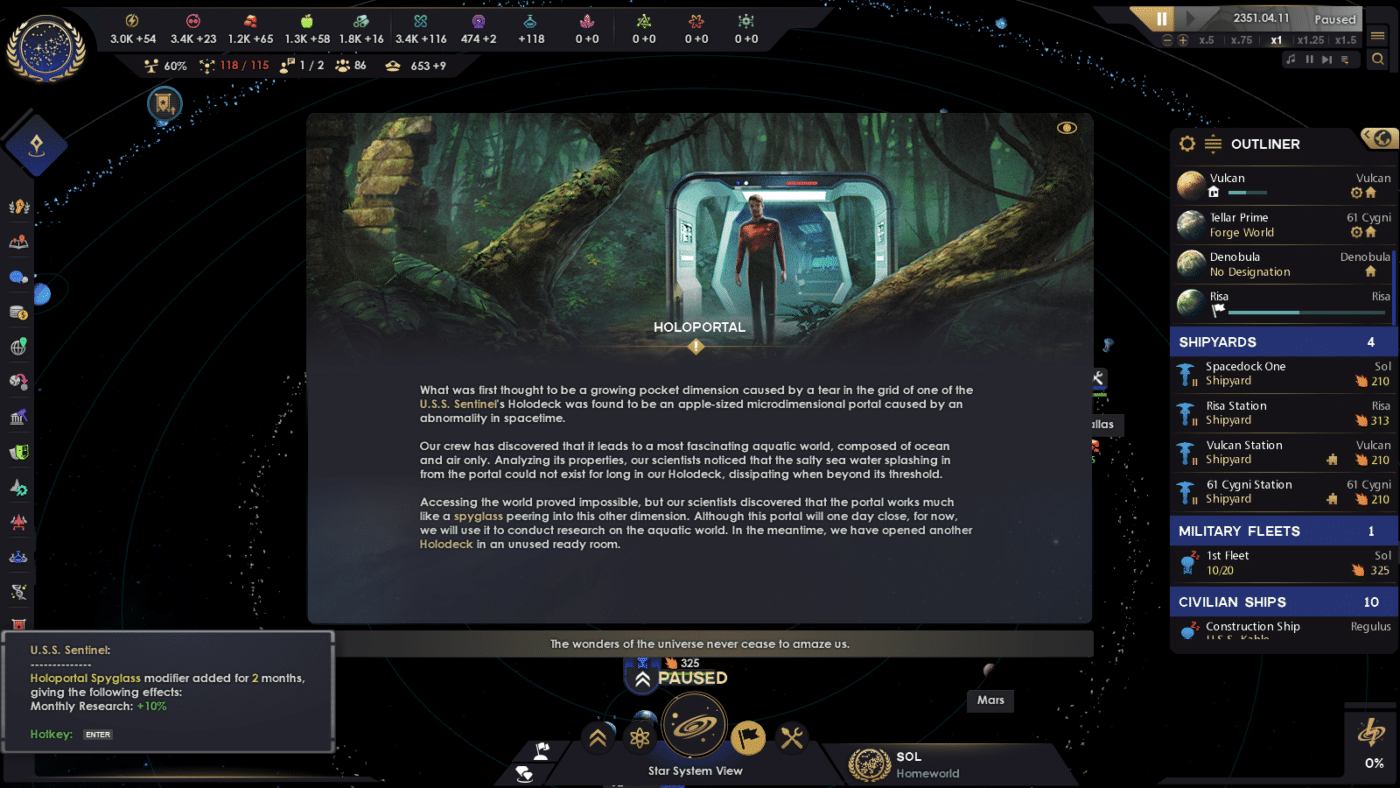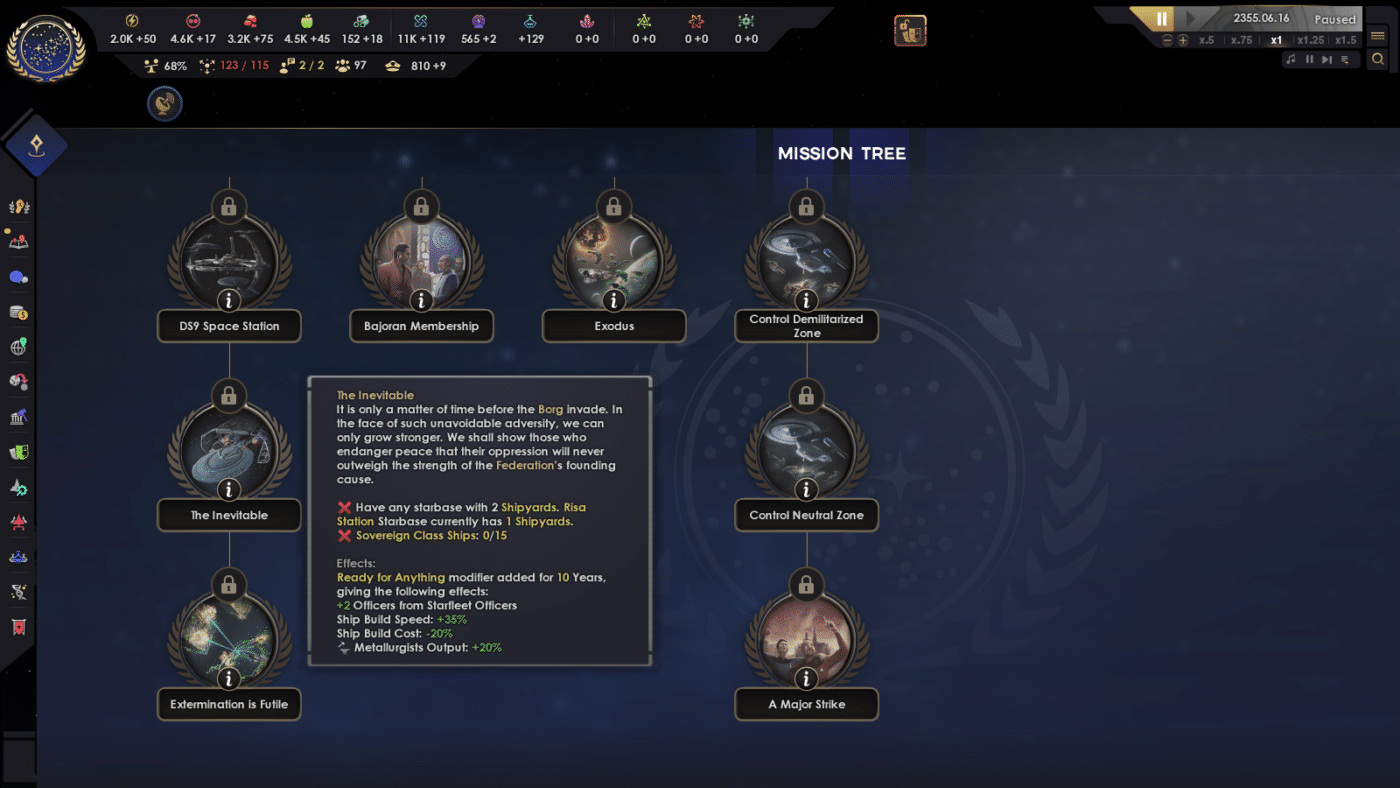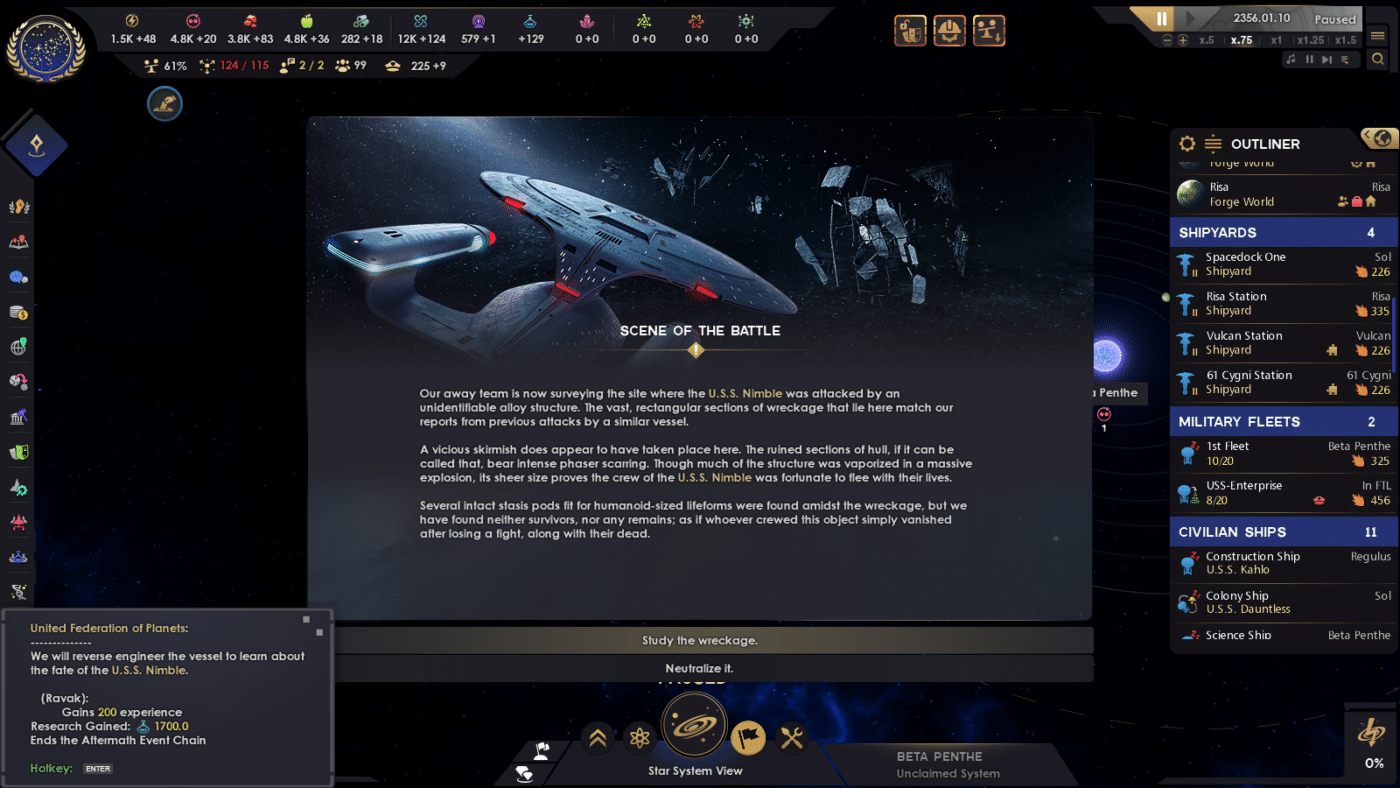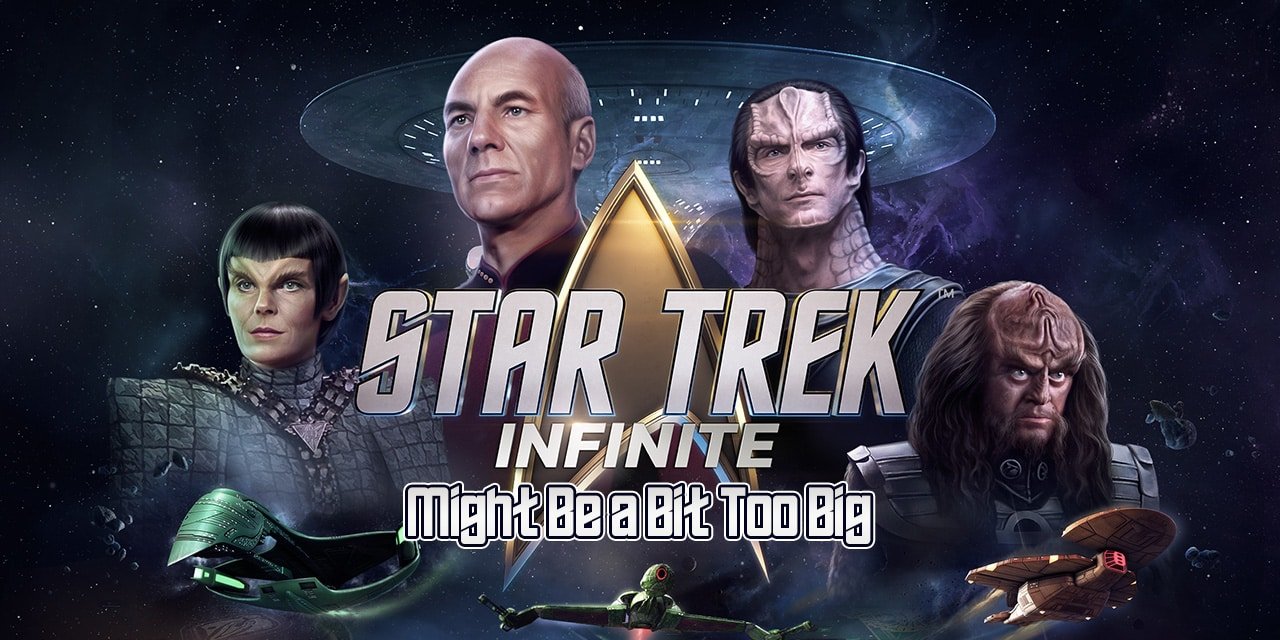As a lifelong Star Trek fan I want to love the new 4X grand strategy game, but there's so much going on that I can't connect with any of it.
Quick View
- Title: Star Trek: Infinite
- Release Date: October 12, 2023
- Price: $29.99
- Availability: Steam
- Recommended for fans of: Stellaris, Star Trek, and Spreadsheets
Geek to Geek Media was provided with a review copy of this title.
I was born into a Star Trek family just as The Next Generation was getting good. One of my earliest memories of TV is the bright lights of Quark's bar. My wife and I spent our rehearsal dinner watching Kirk save the galaxy with the power of the Beastie Boys.
I host a Star Trek podcast, for crying out loud.
Given all of that, I should be an absolute mark for Star Trek video games, but they almost always fall flat. I was really hoping that the expanded view of Star Trek: Infinite would give me the Trek game I've dreamed of, but it's maybe a bit too expansive.
Zooming Way Out

Star Trek: Infinite is a very, very zoomed out view of the Star Trek franchise. I mean that literally. You can spend almost your entire time playing the game with a view of the entire galaxy. After Star Trek Prodigy: Supernova put you in control of the kids from that show and Star Trek: Resurgence lets you play as two specific members of a proper ship, Star Trek: Infinite puts you in control of an entire civilization.
When you start a game you can choose to play as the United Federation of Planets, Klingon Empire, Romulan Star Empire, or the Cardassian Union. Each of these factions has its own system of government, classes of ships, and mission trees.
Regardless of which campaign you play, you’ll start in the late 24th Century, just before The Next Generation era. In fact, in the UFP campaign, building the Enterprise-D and recruiting its crew are some of the first objectives you’ll undertake.
The 4X Loop

I’ve been vaguely aware of 4X games for a long time, but I’ve never really dipped into the genre. Most of my “grand strategy” experience is in the Civilization tract, where you make choices about how to manage and expand your empire and how to interact with your neighbors in a turn-based format. Infinite is similar in a lot of ways, except it plays out in real-time.
As the vague, omnipotent overlord of your civilization, you manage the production of new ships, research of new technologies, and exploration of new solar systems.
Zooming in on individual planets allows you to manage their facilities and production of fungible resources like energy credits, food, and deuterium, as well as more nebulous ones like “unity”, “influence”, and “research”.
As your fleet surveys planets you’ll get opportunities to establish new colonies, meet new species to interact with, and uncover mysteries to investigate. Having the right command staff assigned to ships as they explore ensures you’ll be able to handle each of these opportunities as efficiently as possible.
Overwhelming Alerts

Star Trek: Infinite is incredibly overwhelming. Conceptually I like all of the aspects of management the game is asking me to do, but in practice, it is a lot to keep track of. You can pause time at any point to focus on a decision, and I think that the game automatically pauses for certain things.
Unfortunately, it doesn’t automatically pause for all events that can pop up in the middle of your screen. I am constantly getting an alert about finding some ancient artifact and then, while trying to figure out whether to study it for research points or sell it for cash, having another pop up on top of it informing me that the leader of the Betazoid still thinks I’m pretty cool.
The game does do a good job of onboarding players with an AI assistant who makes announcements when tasks are complete. It will also help explain every aspect of the game the first time you come across it. This would be unplayable without that constant hand-holding.
The Mission Tree

When major events occur, they get added to the in-game mission log. This helps you keep track of your progress at making contact with new civilizations, tracking down missing colonists, or studying the debris field from a massive attack.
The mission log acts as a sort of “current events” tracker for the narrative of the game, but it’s the Mission Tree that is actually important. At first, I thought of this more like a skill tree, where completing certain tasks would net me increases to my civilization's stats. After mucking around without really understanding what my driving purpose in the game was, I realized that the Mission Tree is in fact where the “plot” of the game happens.
Completing objectives on the tree acts as a branching narrative, unlocking new story events that push the entire galaxy forward. With so many small things to manage in the Galaxy Map, I missed that the actual objective of Star Trek: Infinite is to check off steps on the Mission Tree in order to hit milestones like establishing Federation control of Deep Space 9, or building up Section 31, or surviving an assault by the Borg.
Final Thoughts

I really want to love Star Trek: Infinite. Once I understood how the Mission Tree worked the whole game started to come into focus for me. Yes, there is a ton of micromanaging that you can engage with, but you can also set things like what technologies to research or what building to fabricate on a planet to happen automatically so that you can put your attention towards the bigger picture story points you want to reach.
Even then, though, the raw amount of stuff happening at any given moment still overwhelms me. Even when I run the game at .5x it feels like I’m constantly having alerts pop up on top of each other, which means I’m spending most of the game reaching for the pause button to try to figure out what is actually happening.
I expect that veterans of the 4X genre will find it easy to manage the galaxy, but for me, there is so much going on that I don’t feel like I can ever latch on to any particular thing in a way that is actually fun or, really, engaging. Looking at the galaxy from that zoomed-out view makes me feel detached.
Even my AI assistant cares about things more than I do. At one point a prompt popped up with what I assume is the crucial information that a campaign for a new Federation President had started. I didn’t know what exactly that meant, who the President had been, or why they weren’t the president anymore. It was just another thing that happened. Another event. Then my AI chimed in: “We have lost a true Federation hero.”
The President died, and I felt nothing.

